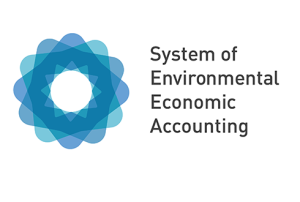 The SEEA, an international statistical standard, provides a coherent and integrated framework for collecting, organizing, analysing, presenting environmental data and relating it to economic and social data. It adheres to the principles of the System of National Accounts (SNA), and expands its scope by:
The SEEA, an international statistical standard, provides a coherent and integrated framework for collecting, organizing, analysing, presenting environmental data and relating it to economic and social data. It adheres to the principles of the System of National Accounts (SNA), and expands its scope by:
- taking an accounting approach to record the stocks and flows of natural inputs into the economy,
- providing standard terminology, definitions, methods and classifications,
- adding measures and classifications of:
- physical stocks of natural capital (including ecosystems) and their monetary values,
- physical resource flows (land, metals and minerals, timber, energy, water, fish) into the economy
- residual flows from the economy (air emissions, water effluents, solid waste) into the environment
- environmental activities such as protection expenditures, taxes and subsidies,
- ecosystems and their services, including biodiversity and carbon sequestration, and
- linking economic activities (producers and consumers) to societal benefits.
Together, FDES and SEEA can address many of the requirements for monitoring and reporting on progress towards national and international environmental, sustainable development, biodiversity and green economy priorities. These requirements include addressing the demand for information in support of integrated policies of the 2030 Agenda for Sustainable Development.
Most FEDS and SEEA indicators and accounts have been implemented in many national contexts. Since national institutional arrangements, environmental contexts and priorities and capacities differ, the guidance on implementation is flexible and modular. This allows countries to select priority information and adapt the guidance to their individual requirements.